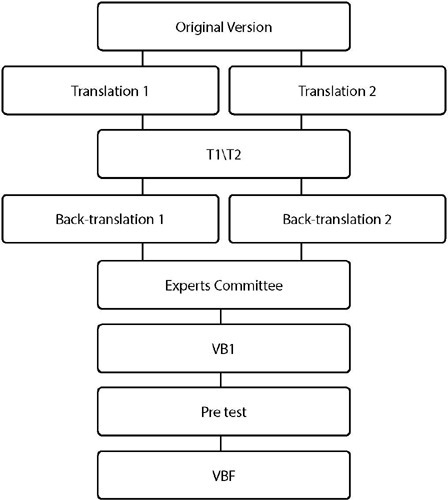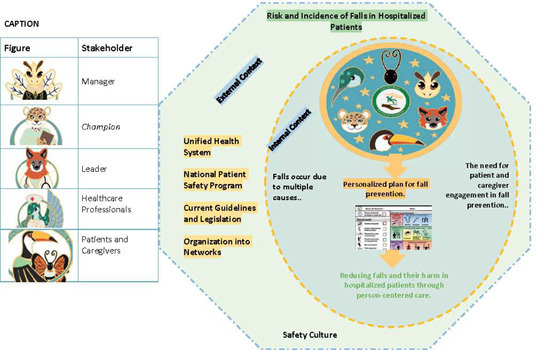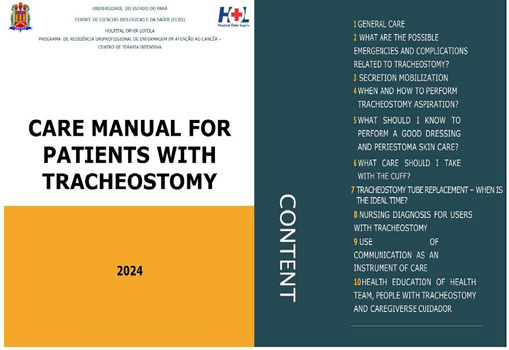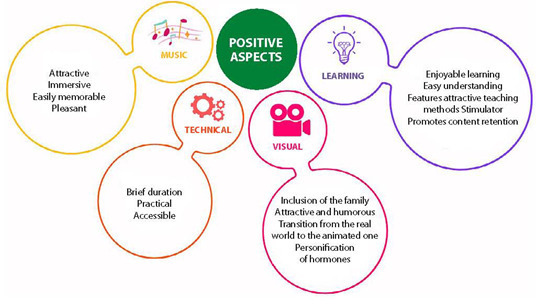-
12-04-2023
A cronicidade e o seu impacto na saúde do trabalhador: uma chamada para ações concretas
Revista Brasileira de Enfermagem. 2023;76:e76suppl301
Abstract
A cronicidade e o seu impacto na saúde do trabalhador: uma chamada para ações concretas
Revista Brasileira de Enfermagem. 2023;76:e76suppl301
DOI 10.1590/0034-7167.202376suppl301pt
Views0A relação entre cronicidade e trabalho tem sido uma preocupação crescente na sociedade contemporânea. À medida que o número de doenças crônicas aumenta em todo o mundo, é fundamental compreender como essas condições impactam a saúde dos trabalhadores(). Neste editorial, exploraremos os impactos da cronicidade na saúde do trabalhador, destacando dados da Carga Global de […]See more -
12-04-2023
Chronicity and its impact on workers’ health: a call for concrete actions
Revista Brasileira de Enfermagem. 2023;76:e76suppl301
Abstract
Chronicity and its impact on workers’ health: a call for concrete actions
Revista Brasileira de Enfermagem. 2023;76:e76suppl301
DOI 10.1590/0034-7167.202376suppl301
Views0The relationship between chronicity and work has been a growing concern in contemporary society. As the number of chronic illnesses increases around the world, it is critical to understand how these conditions impact workers’ health(). In this editorial, we will explore the impacts of chronicity on workers’ health, highlighting data from the Global Burden of […]See more -
12-04-2023
General Law on Personal Data Protection and applicability to Nursing
Revista Brasileira de Enfermagem. 2023;76:e20230126
Abstract
General Law on Personal Data Protection and applicability to Nursing
Revista Brasileira de Enfermagem. 2023;76:e20230126
DOI 10.1590/0034-7167-2023-0126
Views0See moreABSTRACT
Objectives:
to reflect on the impacts of the General Personal Data Protection Law on Nursing practice.
Methods:
reflection article, through the intentional collection of materials relating to the topic.
Results:
legislation regulates confidentiality, processing and data sharing, requiring institutional protection measures. The nursing team is responsible for acting preventively, both in care and in the management role, in order to avoid the misuse of the patient’s personal data. The law allows academic research to be carried out as long as the purpose is clear, data collection occurs with an explicit purpose and data is anonymized.
Final Considerations:
although the General Personal Data Protection Law requires greater care in relation to data processing, it is established on precepts of good faith and respect for the rights of the individual, concepts aligned with the nursing code of ethics.

-
REVIEW12-04-2023
Supervision of professional nursing practice in Brazil: a scoping review
Revista Brasileira de Enfermagem. 2023;76:e20230077
Abstract
REVIEWSupervision of professional nursing practice in Brazil: a scoping review
Revista Brasileira de Enfermagem. 2023;76:e20230077
DOI 10.1590/0034-7167-2023-0077
Views0See moreABSTRACT
Objectives:
to map studies that analyze the audit process of nursing councils.
Methods:
this is a scoping review, anchored in the JBI framework, with the guiding question: what is the evidence of the audit process of legal practice of nursing by class councils (COFEN/COREN system)? The searches were carried out in October and November 2022 without limitation of language and year.
Results:
of the 9 selected studies, all are Brazilian and published from 2014 onwards. Among the topics addressed are the role, challenges, costs and difficulties in nurse auditors’ daily work process, in addition to the contribution of the audit sector in Brazil.
Conclusions:
the studies gathered discuss aspects related to costs, challenges and difficulties, but there is no focus on corrective, disciplinary and educational activities as well as little is said about the audit process, its reporting, referral and outcomes.

-
ORIGINAL ARTICLE12-04-2023
Overview of nursing ethics teaching in Brazilian public higher education institutions
Revista Brasileira de Enfermagem. 2023;76:e20220808
Abstract
ORIGINAL ARTICLEOverview of nursing ethics teaching in Brazilian public higher education institutions
Revista Brasileira de Enfermagem. 2023;76:e20220808
DOI 10.1590/0034-7167-2022-0808
Views0See moreABSTRACT
Objectives:
to outline the teaching of ethics in undergraduate Nursing programs in Brazilian public higher education institutions.
Methods:
descriptive and exploratory study, carried out through the documentary analysis of pedagogical projects of undergraduate Nursing programs in Brazil.
Results:
153 active undergraduate Nursing programs were found, of which 106 provide the pedagogical project. In addition to deontological teaching, the teaching of ethics was identified in a transversal way associated with themes such as Social Context, Hospital and Community Care, Pharmacology, Systematization of Nursing Care, Surgical Nursing, Epidemiology, Palliative Care, Management in Nursing, Diversity, Women’s, Children’s, Adolescent’s, Adult’s and Older People’s Health, and Mental Health.
Final Considerations:
the challenge in teaching nursing ethics is its integration with each action of caring, teaching and managing.

-
12-04-2023
La ética de la atención de enfermería a las personas transgénero
Revista Brasileira de Enfermagem. 2023;76:e20220797
Abstract
La ética de la atención de enfermería a las personas transgénero
Revista Brasileira de Enfermagem. 2023;76:e20220797
DOI 10.1590/0034-7167-2022-0797es
Views0See moreRESUMEN
Objetivos:
debatir sobre aspectos éticos en la atención de enfermería a personas transgénero.
Métodos:
estudio reflexivo fundamentado sobre los dilemas que se plantean en los cuidados de enfermería a personas transgénero. El relato se ha estructurado en torno a los cuatro principios bioéticos.
Resultados:
la atención sanitaria a las personas trans es compleja, transversal a muchos dispositivos y especialidades y longitudinal en el tiempo por lo que precisa de la actuación coordinada. Existe un marco ético en el que se encuadran los cuidados de enfermería que se precisan en la atención a este colectivo.
Consideraciones Finales:
la enfermera como agente de salud puede asumir diversas líneas generales en la atención a pacientes transgénero. Para ello, se debe brindar formación adicional no solo a los profesionales, también a los estudiantes de enfermería y de las demás ciencias de la salud.
-
12-04-2023
Ethical dilemmas at the end of life: a reflection from the Philosophical Perspective of Luigina Mortari
Revista Brasileira de Enfermagem. 2023;76:e20220759
Abstract
Ethical dilemmas at the end of life: a reflection from the Philosophical Perspective of Luigina Mortari
Revista Brasileira de Enfermagem. 2023;76:e20220759
DOI 10.1590/0034-7167-2022-0759
Views0See moreABSTRACT
Objectives:
to reflect on the ethical dilemmas involved in the care of patients at the end of their lives.
Methods:
this is a theoretical-reflective study based on the ethics of care proposed by Luigina Mortari.
Results:
discussing care involves addressing the ways of being inherent to human existence and understanding the unique characteristics of this condition. Ethical care constitutes an action driven by interest in the other and by the perception of their need. Ethical dilemmas are a part of end-of-life care, making it essential to maintain respectful assistance that considers the patient’s autonomy, using strategies for expressing their wishes, and ensuring continuous clear and empathetic communication among all those involved in providing care.
Final Considerations:
issues related to being, stemming from one’s reality of dependency and vulnerability, contribute to the emergence of ethical dilemmas present in care actions.
-
06-14-2024
Duração e qualidade do sono da equipe de enfermagem brasileira que trabalha em turnos
Revista Brasileira de Enfermagem. 2024;77(2):e20230167
Abstract
Duração e qualidade do sono da equipe de enfermagem brasileira que trabalha em turnos
Revista Brasileira de Enfermagem. 2024;77(2):e20230167
DOI 10.1590/0034-7167-2023-0167
Views0See moreRESUMEN
Objetivo:
analizar la duración y calidad del sueño en profesionales de enfermería que trabajan por turnos.
Método:
investigación analítica, transversal, realizada entre septiembre de 2017 y abril de 2018, en un hospital público del sur de Brasil, con el equipo de enfermería. Se utilizó el cuestionario sociolaboral y de síntomas de salud, la Escala de Somnolencia de Epworth y el Índice de Calidad del Sueño de Pittsburgh. Los datos se presentan como estadística descriptiva e inferencial, análisis bivariado y regresión logística binaria.
Resultados:
participaron 308 profesionales de enfermería, con predominio de sueño prolongado, ausencia de somnolencia y mala calidad del sueño. La duración corta del sueño (<6 h) se asoció con turnos de día y mala calidad del sueño. La calidad del sueño se asoció con la presencia de somnolencia diurna excesiva y con el trabajo diurno.
Conclusión:
los turnos de trabajo, el insomnio y la cefalea fueron los principales factores relacionados con la falta de sueño de los profesionales de enfermería. Los resultados pueden justificar el desarrollo de investigaciones de intervención para la salud de los trabajadores.
-
ORIGINAL ARTICLE06-14-2024
Sleep duration and quality of Brazilian nursing staff who work in shifts
Revista Brasileira de Enfermagem. 2024;77(2):e20230167
Abstract
ORIGINAL ARTICLESleep duration and quality of Brazilian nursing staff who work in shifts
Revista Brasileira de Enfermagem. 2024;77(2):e20230167
DOI 10.1590/0034-7167-2023-0167
Views0See moreABSTRACT
Objective:
to analyze sleep duration and sleep quality in nursing professionals who work in shifts.
Method:
this is a cross-sectional, analytical research, carried out between September 2017 and April 2018, at a public hospital in southern Brazil, with the nursing team. A socio-occupational and health symptoms questionnaire, the Epworth Sleepiness Scale, and the Pittsburgh Sleep Quality Index were used. Data are presented as descriptive and inferential statistics, bivariate analysis, and binary logistic regression.
Results:
participants were 308 nursing professionals with a predominance of long-term sleep, absence of drowsiness, and poor sleep quality. Short-term sleep (<6h) was associated with day shift and poor sleep quality. Sleep quality was associated with presence excessive daytime sleepiness and work day shift.
Conclusion:
work shift, insomnia and headache were the main factors related short-term sleep for nursing professionals. The results may justify the development of intervention research for workers’ health.
-
ORIGINAL ARTICLE06-14-2024
Translation and Cross-Cultural Adaptation of the LYMPH-ICF Instrument for Lymphedema into Portuguese/Brazil
Revista Brasileira de Enfermagem. 2024;77(2):e20230137
Abstract
ORIGINAL ARTICLETranslation and Cross-Cultural Adaptation of the LYMPH-ICF Instrument for Lymphedema into Portuguese/Brazil
Revista Brasileira de Enfermagem. 2024;77(2):e20230137
DOI 10.1590/0034-7167-2023-0137
Views0See moreABSTRACT
Objective:
The aim of this study is to cross-culturally adapt the Lymphoedema Functioning, Disability and Health Questionnaire Lymphoedema (LYMPH-ICF) instrument into Brazilian Portuguese and conduct a pilot application (n = 10), without psychometric pretensions.
Method:
Methodological research was conducted, following the steps of translation, synthesis, back-translation, and evaluation by the expert committee. Two translators, two back-translators, and twelve professionals participated in the expert committee. A pretest was carried out with 10 patients with secondary lymphedema due to breast cancer. The degree of agreement was determined by the content validity coefficient.
Results:
It was necessary to modify 8 out of the 29 questions comprising the questionnaire, which exhibited idiomatic disagreement. However, despite these changes, there were no indications of impairments, as content reliability was achieved through a validity coefficient of 0.90.
Final Considerations:
The instrument was successfully translated and cross-culturally adapted for Brazil with a high level of agreement.

-
ORIGINAL ARTICLE05-27-2024
Fall Tailoring Interventions for Patient Safety Brazil Program: an evaluability study in a teaching hospital
Revista Brasileira de Enfermagem. 2024;77(2):e20230348
Abstract
ORIGINAL ARTICLEFall Tailoring Interventions for Patient Safety Brazil Program: an evaluability study in a teaching hospital
Revista Brasileira de Enfermagem. 2024;77(2):e20230348
DOI 10.1590/0034-7167-2023-0348
Views0See moreABSTRACT
Objectives:
to present the theoretical model, logic model, and the analysis and judgment matrix of the Fall TIPS Brazil Program.
Methods:
a qualitative, participatory research approach, in the form of an evaluability study, encompassing the phases (1) problem analysis; (2) program design, development, and adaptation to the Brazilian context; (3) program dissemination. Data were collected through document analysis and workshops.
Results:
through document analysis, workshops with stakeholders from the participating institution, and validation with key informants, it was possible to identify the program’s objectives, expected outcomes, and the target audience. This allowed the construction of theoretical and logic models and, through evaluative questions, the identification of indicators for the evaluation of the Fall TIPS Brazil Program.
Final Considerations:
this study has provided insights into the Fall TIPS program, the topic of hospital fall prevention, and the proposed models and indicators can be employed in the implementation and future evaluative processes of the program.

-
ORIGINAL ARTICLE05-27-2024
Nursing care protocol for critical users with tracheostomy under mechanical ventilation
Revista Brasileira de Enfermagem. 2024;77(2):e20230337
Abstract
ORIGINAL ARTICLENursing care protocol for critical users with tracheostomy under mechanical ventilation
Revista Brasileira de Enfermagem. 2024;77(2):e20230337
DOI 10.1590/0034-7167-2023-0337
Views0See moreABSTRACT
Objectives:
to develop and assess a nursing care protocol for critically ill users with tracheostomy under mechanical ventilation.
Methods:
a methodological study, developed through two phases, guided by the 5W2H management tool: I) target audience characterization and II) technology development.
Results:
thirty-four nursing professionals participated in this study, who presented educational demands in relation to care for critical users with tracheostomy, with an emphasis on standardizing care through a protocol and carrying out continuing education.
Final Considerations:
the creation and validity of new technologies aimed at this purpose enhanced the participation of nursing professionals and their empowerment in the health institution’s microsectoral actions and in macrosectoral actions, highlighting the need for public policies that guarantee the conduct of a line of care for users with tracheostomy.

-
ORIGINAL ARTICLE05-27-2024
Assessment of educational technology in lactation physiology by health students
Revista Brasileira de Enfermagem. 2024;77(2):e20230252
Abstract
ORIGINAL ARTICLEAssessment of educational technology in lactation physiology by health students
Revista Brasileira de Enfermagem. 2024;77(2):e20230252
DOI 10.1590/0034-7167-2023-0252
Views0See moreABSTRACT
Objectives:
to assess the suitability, facilitators, and barriers of using a video clip for teaching lactation physiology to health students.
Methods:
a cross-sectional study was conducted with online data collection at a higher education institution, using the Assistive Technology Assessment Instrument and open-ended questions. The sample consisted of 88 students.
Results:
the video clip was deemed suitable in all attributes. Facilitators identified included attractiveness, musicality, and ease of access. Barriers noted were the music’s speed and the necessity for prior knowledge. The video clip achieved adequate scores for interactivity (1.71), purpose (1.77), relevance (1.64), and clarity (1.77). The overall average of the attributes was 1.72.
Conclusions:
the video clip can serve as an effective learning strategy to enhance hybrid education, potentially contributing to the promotion and support of breastfeeding. However, some barriers underscore the importance of prior knowledge for a complete understanding of the content.

-
ORIGINAL ARTICLE05-27-2024
Technology for nursing care in a Maternal Intensive Care Unit: a methodological study
Revista Brasileira de Enfermagem. 2024;77(2):e20230202
Abstract
ORIGINAL ARTICLETechnology for nursing care in a Maternal Intensive Care Unit: a methodological study
Revista Brasileira de Enfermagem. 2024;77(2):e20230202
DOI 10.1590/0034-7167-2023-0202
Views0See moreABSTRACT
Objectives:
to develop and validate a nursing care plan in a Maternal Intensive Care Unit.
Methods:
a methodological study, developed in stages: integrative review; Nursing History construction; care plan restructuring; appearance and content validity by judges.
Results:
the history was organized into sections: Identification; Basic Human Needs; Physical Examination; and Assessment of Basic Human Needs. A care plan was restructured with 34 diagnoses, organized according to basic human needs. A satisfactory level of appearance validity of the history and care plan was obtained (Concordance Index varying between 86.3 and 100 for both instruments), and content validity with average indexes of 90.8 and 92.8, respectively. Thirty-four diagnoses, their interventions and nursing actions were consolidated.
Conclusions:
the instruments were considered relevant and pertinent in terms of appearance and content, and their use in the institution under study as well as in other similar services may be recommended.
-
05-13-2024
Metodologia qualitativa: considerações e singularidades sobre a implementação de intervenções centradas na pessoa
Revista Brasileira de Enfermagem. 2024;77(3):e770301
Abstract
Metodologia qualitativa: considerações e singularidades sobre a implementação de intervenções centradas na pessoa
Revista Brasileira de Enfermagem. 2024;77(3):e770301
DOI 10.1590/0034-7167.2024770301pt
Views0A investigação qualitativa em saúde permite a compreensão aprofundada de como a pessoa experiencia as diferentes transições de saúde, a relação com os profissionais de saúde e a passagem pelos diferentes ambientes de prática clínica. Concomitantemente, tem o potencial de suportar a tomada de decisão clínica dos profissionais e de empoderar o cidadão na sua […]See more
-
01-01-2016
Health needs and nursing care
Revista Brasileira de Enfermagem. 2016;69(6):1236-1239
Abstract
Health needs and nursing care
Revista Brasileira de Enfermagem. 2016;69(6):1236-1239
DOI 10.1590/0034-7167-2016-0128
Views0See moreABSTRACT
Objective:
to present the concept of needs according to different approaches to discuss the possibility of health care that incorporates a broader view of human vulnerabilities in health services.
Methods:
the arguments are founded on nursing theorists who worked on the construction of frameworks relevant to care, based on needs and on philosophers who show the possibility of identifying the vulnerabilities of human beings, defending art as a therapeutic instrument that can promote health care.
Conclusion:
although care can acquire a new dimension with the introduction of art, according to certain perspectives, philosophical studies on ethics and aesthetics should be resumed to identify human vulnerabilities that can in fact be compensated by sensible understanding of the outer world. To incorporate art in nursing care requires studies from theorists to be recovered, deepening concepts and working on empirical investigations for their adequate use.
-
01-01-2016
Case studies and role play: learning strategies in nursing
Revista Brasileira de Enfermagem. 2016;69(6):1231-1235
Abstract
Case studies and role play: learning strategies in nursing
Revista Brasileira de Enfermagem. 2016;69(6):1231-1235
DOI 10.1590/0034-7167-2016-0277
Views0See moreABSTRACT
Objective:
to report professors’ experience in a public university of Southern region of Brazil using case studies and role play as learning strategies for nursing care of hospitalized adults.
Method:
learning experience report from the Nursing Care of Adults I class of nursing undergraduate course.
Results
the development of case studies and role play considered health care needs from epidemiological profile of chronic noncommunicable diseases morbidity and mortality, nursing as an assisting method, and social aspects of hospitalized individuals. Role play planning was made by creating a stage in laboratory of practices and dialogues comprising students and professors interaction.
Conclusion
case studies and role play encouraged students to active search for learning and brought theory closer to real health care situations.

-
01-01-2016
Politicy of care in the criticism towards gender stereotypes
Revista Brasileira de Enfermagem. 2016;69(6):1223-1230
Abstract
Politicy of care in the criticism towards gender stereotypes
Revista Brasileira de Enfermagem. 2016;69(6):1223-1230
DOI 10.1590/0034-7167-2016-0441
Views0See moreABSTRACT
Objectives:
analyze gender inequalities among Brazilian women in Portugal and in contemporary nursing based on care politicity in the light of gender; disclose oppression of the female produced by the stereotypes that look upon women as natural caregivers; point out politicity to deconstruct gender stereotypes.
Method:
theoretical reflection with narrative review of literature to analyze classic references in the feminist epistemology combined with the care politicity thesis.
Results:
the similarities between the stereotypes of the Brazilian Eves and the Portuguese Maries as either the sexualized or sanctified nurse are inserted in the Jewish-Christian moral genealogy that reaffirms the subservience of the female to the male.
Conclusion:
by attaching priority to care that needs non-care to expand the possibilities of care giving, the theoretical assumption of politicy of care can contribute to subvert the stereotypical images of Brazilian women in Portuguese lands and in contemporary nursing.
-
01-01-2016
Strategies for thirst relief: integrative literature review
Revista Brasileira de Enfermagem. 2016;69(6):1215-1222
Abstract
Strategies for thirst relief: integrative literature review
Revista Brasileira de Enfermagem. 2016;69(6):1215-1222
DOI 10.1590/0034-7167-2016-0317
Views0See moreABSTRACT
Objective:
to analyze the strategies used to relieve the thirst of hospitalized patients.
Method:
an integrative review, for which the databases PubMed, LILACS, CINAHL and the group of references organized by the Group for Study and Research of Thirst were selected for the search of primary studies, with the keywords: thirst, ice, cold, intervention, nursing care, artificial saliva.
Results:
the review sample was composed of ten primary studies. The strategies found were: low temperature using frozen gauze, ice chips, and cold water, menthol associated with cold strategies, chewing gum, acupressure, and the use of a thin straw, substitute saliva, and early fluid ingestion.
Conclusion:
the temperature was presented as a predominant and effective strategy to relieve the thirst for surgical patients in intensive care and hemodialysis treatment.

-
01-01-2016
Care of the self and power relations: female nurses taking care of other women
Revista Brasileira de Enfermagem. 2016;69(6):1204-1214
Abstract
Care of the self and power relations: female nurses taking care of other women
Revista Brasileira de Enfermagem. 2016;69(6):1204-1214
DOI 10.1590/0034-7167-2016-0021
Views0See moreABSTRACT
Objective:
to analyze the care of self of female nurses and the power relations established by them in the care of other women.
Method:
integrative review of literature published between 2005 and 2015. There were 25 publications in the sample.
Results:
qualitative state of the art with reference domain of a liberating perspective, based on humanization, autonomy and empowerment as a risk reduction strategy in the practice of care to women. The findings suggest solidified power relations among female nurses and women, focused on professional domain concentrated on nurse education under the patriarchal and society’s normalization discourse. Some studies consider the importance of understanding power in a capillary way, operating on the bodies of individuals.
Conclusion:
there is little discussion about the care of self of nurses and the effects on their professional practice, indicating gaps in knowledge in this field.

-
01-01-2016
Nursing competencies in promoting the health of individuals with chronic diseases
Revista Brasileira de Enfermagem. 2016;69(6):1195-1203
Abstract
Nursing competencies in promoting the health of individuals with chronic diseases
Revista Brasileira de Enfermagem. 2016;69(6):1195-1203
DOI 10.1590/0034-7167-2016-0312
Views0See moreABSTRACT
Objective:
to identify nurse’s competencies related to health promotion of individuals with chronic cardiac disease, in the light of the Galway consensus.
Method:
integrative literature review was conducted to search for studies published between 2010 and 2014 in the databases LILACS, BDENF, IBECS; and PubMed in February 2015. The 21 included studies were analyzed according to the eight domains of competence: Catalyzing change, Leadership, Evaluation, Planning, Implementation, Assessment, Advocacy and Partnerships.
Results:
all domains of competence were included in the nursing interventions in health promotion of chronic cardiac patients, and the Planning and Evaluation were the most evident competences.
Conclusion:
the results of this research highlighted the nurse as an agent capable of operating care management, in order to improve coordination of the latter with work and education and, thus, the health care of the population.

-
01-01-2016
Assisted therapy with dogs in pediatric oncology: relatives’ and nurses’ perceptions
Revista Brasileira de Enfermagem. 2016;69(6):1188-1194
Abstract
Assisted therapy with dogs in pediatric oncology: relatives’ and nurses’ perceptions
Revista Brasileira de Enfermagem. 2016;69(6):1188-1194
DOI 10.1590/0034-7167-2016-0243
Views0See moreABSTRACT
Objective:
to understand the perception of nursing staff professionals and legal guardians of children and adolescents with cancer regarding Assisted Therapy with dogs.
Method:
qualitative study based on participant observation conducted with 16 participants in a reference hospital of child cancer. We applied an in-depth interview and interpreted the data according to a content analysis technique.
Results:
the practice is admittedly beneficial to participants despite the fact they do not understand its true objectives and therapeutic applications. Participants only associate it with something distracting and entertaining without realizing the occurrence of a more complex process behind it, which comprises changes besides the emotional ones (more easily perceived).
Conclusion:
the perceptions of participants reinforce recommendations that can be applied in the hospital environment, also showing that the therapy in question can become an effective technology to promote the health of children and adolescents with cancer.
-
01-01-2016
Socio-environmental approach in nursing: focusing on rural labor and the use of pesticides
Revista Brasileira de Enfermagem. 2016;69(6):1179-1187
Abstract
Socio-environmental approach in nursing: focusing on rural labor and the use of pesticides
Revista Brasileira de Enfermagem. 2016;69(6):1179-1187
DOI 10.1590/0034-7167-2016-0364
Views0See moreABSTRACT
Objective:
to apply a socio-environmental approach to the relationship between human health and rural labor through a link verification/association between health disorders and the use of pesticides.
Method:
this is a quantitative, cross-sectional, observational and exploratory study with 331 inhabitants of two cities in the state of Rio Grande do Sul, Brazil. Data analysis was conducted by Poisson regression.
Results:
reported health disorders included: mental (62.2%); circulatory (49.8%); dermatologic (45%); respiratory (41%); and gastric (36.2%). Workers who apply pesticides showed a 90% higher prevalence of dermatological alterations when compared to those who did not.
Conclusion:
the socio-environmental approach, comprising elements of the rural environment, of workers, and of the use of pesticides in the work process in connection/association with potential health disorders has shown that rural workers who apply pesticides present a higher prevalence of dermatological alterations.

Search
Search in:
Nuvem de Tags
Adolescente (85) Atenção Primária à Saúde (239) COVID-19 (91) Criança (91) Cuidados de Enfermagem (269) Educação em Enfermagem (151) Educação em Saúde (139) Enfermagem (930) Enfermagem Pediátrica (86) Estudantes de Enfermagem (77) Estudos de Validação (131) Família (87) Idoso (208) Promoção da Saúde (99) Qualidade de Vida (104) Saúde do Trabalhador (86) Saúde Mental (145) Saúde Pública (82) Segurança do Paciente (150) Tecnologia Educacional (100)



